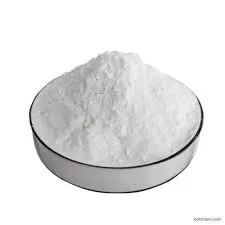- Afrikaans
- Albanian
- Amharic
- Arabic
- Armenian
- Azerbaijani
- Basque
- Belarusian
- Bengali
- Bosnian
- Bulgarian
- Catalan
- Cebuano
- Corsican
- Croatian
- Czech
- Danish
- Dutch
- English
- Esperanto
- Estonian
- Finnish
- French
- Frisian
- Galician
- Georgian
- German
- Greek
- Gujarati
- Haitian Creole
- hausa
- hawaiian
- Hebrew
- Hindi
- Miao
- Hungarian
- Icelandic
- igbo
- Indonesian
- irish
- Italian
- Japanese
- Javanese
- Kannada
- kazakh
- Khmer
- Rwandese
- Korean
- Kurdish
- Kyrgyz
- Lao
- Latin
- Latvian
- Lithuanian
- Luxembourgish
- Macedonian
- Malgashi
- Malay
- Malayalam
- Maltese
- Maori
- Marathi
- Mongolian
- Myanmar
- Nepali
- Norwegian
- Norwegian
- Occitan
- Pashto
- Persian
- Polish
- Portuguese
- Punjabi
- Romanian
- Russian
- Samoan
- Scottish Gaelic
- Serbian
- Sesotho
- Shona
- Sindhi
- Sinhala
- Slovak
- Slovenian
- Somali
- Spanish
- Sundanese
- Swahili
- Swedish
- Tagalog
- Tajik
- Tamil
- Tatar
- Telugu
- Thai
- Turkish
- Turkmen
- Ukrainian
- Urdu
- Uighur
- Uzbek
- Vietnamese
- Welsh
- Bantu
- Yiddish
- Yoruba
- Zulu
Nov . 11, 2024 03:54 Back to list
Ivermectin Injection for Sheep Benefits, Dosage, and Usage Guidelines
Ivermectin Sheep Injection An Overview
Ivermectin is a broad-spectrum antiparasitic agent widely used in veterinary medicine, particularly for sheep and other livestock. Its primary function is to treat a variety of parasitic infections, including those caused by nematodes, ectoparasites, and some protozoa. In the sheep industry, the use of ivermectin has significantly contributed to improving animal health and productivity. This article provides an overview of the applications, benefits, and considerations regarding the use of ivermectin in sheep injection formulations.
Applications of Ivermectin in Sheep
Ivermectin is effective against several external and internal parasites that commonly affect sheep. Internal parasites, such as gastrointestinal roundworms (nematodes), can lead to severe health issues, including anemia, weight loss, and reduced wool production. Ectoparasites like mites and ticks also pose a threat, leading to skin irritation and secondary infections. The administration of ivermectin through injection provides a convenient and efficient means to control these parasites.
The injectable form of ivermectin is typically administered subcutaneously or intramuscularly, depending on the specific product and veterinary guidelines. This route of administration allows for rapid absorption and a quicker onset of action compared to oral formulations. Furthermore, injectable ivermectin often has a longer duration of efficacy, requiring fewer treatments over time, which is advantageous for both animal welfare and economic considerations.
Benefits of Ivermectin Use
One of the primary benefits of using ivermectin in sheep is its broad-spectrum efficacy. It effectively targets multiple species of parasites, simplifying treatment protocols for sheep farmers. This versatility helps in managing parasite resistance, as rotating and combining different classes of antiparasitic drugs can help mitigate the risk of resistance development.
Moreover, ivermectin is known for its safety profile. When administered according to veterinary guidelines and dosage recommendations, ivermectin has a low incidence of adverse effects in sheep. This characteristic makes it a favored choice among veterinarians and livestock owners alike, promoting the health and productivity of affected animals.
ivermectin sheep injection

Another significant advantage of ivermectin is its potential for improving sheep productivity. Healthy sheep generally exhibit better weight gain, increased wool production, and improved reproductive performance. By minimizing the burden of parasitic infections, ivermectin treatment can lead to enhanced overall farm profitability.
Considerations and Best Practices
Despite its many benefits, there are several considerations that sheep farmers should keep in mind when using ivermectin. One critical aspect is the development of resistance in parasites. Over-reliance on ivermectin can lead to reduced efficacy over time, making it crucial for farmers to develop comprehensive parasite management strategies. This includes integrating different classes of antiparasitic medications, implementing rotational grazing, and utilizing fecal egg count monitoring to make informed decisions about treatment.
Farmers should also be aware of the withdrawal periods associated with ivermectin use. Ensuring compliance with withholding times is essential for maintaining food safety and meeting regulatory requirements for sheep products intended for human consumption.
Additionally, while ivermectin is widely effective, it is not effective against all parasites. For instance, it does not target liver flukes or certain tapeworms. Thus, a thorough veterinary assessment is necessary to determine the appropriate treatment regimen for a specific flock.
Conclusion
In conclusion, ivermectin sheep injection is an invaluable tool in the management of parasitic infections in livestock. Its broad-spectrum efficacy, ease of administration, and safety profile make it a preferred choice among sheep producers. However, responsible use, combined with best management practices, is essential to address potential issues such as resistance and ensure the long-term effectiveness of this important veterinary medication. Through prudent use, farmers can safeguard the health of their sheep and enhance the sustainability of their farming operations.
-
Guide to Oxytetracycline Injection
NewsMar.27,2025
-
Guide to Colistin Sulphate
NewsMar.27,2025
-
Gentamicin Sulfate: Uses, Price, And Key Information
NewsMar.27,2025
-
Enrofloxacin Injection: Uses, Price, And Supplier Information
NewsMar.27,2025
-
Dexamethasone Sodium Phosphate Injection: Uses, Price, And Key Information
NewsMar.27,2025
-
Albendazole Tablet: Uses, Dosage, Cost, And Key Information
NewsMar.27,2025













